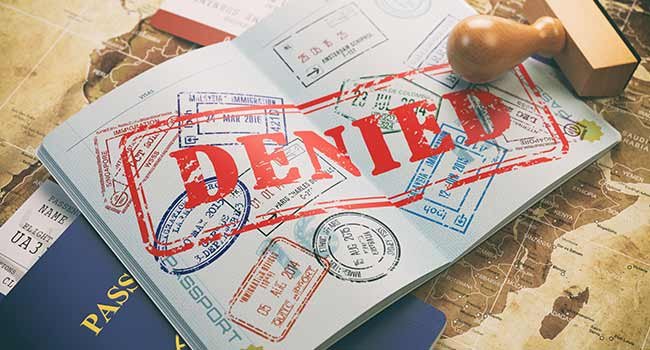THE United States has intensified its visa screening process by extending its vetting beyond paperwork and interviews into the digital footprints of applicants.
News Point Nigeria reports that under new rules, foreigners seeking American visas must now disclose all social media handles used in the past five years when filling out the standard Form DS-160, and ensure those accounts remain publicly accessible.
Consular officers are mandated to review applicants’ online activity, often running search engine checks and leveraging sophisticated investigative tools such as LexisNexis.
Officials say the move reflects Washington’s shift toward “comprehensive and thorough vetting”, designed to detect potential security risks or violations of immigration law before granting entry.
According to U.S. immigration experts, any effort to hide, delete, or make social media accounts private during the process may be deemed suspicious, possibly resulting in delays or outright denial.
Once dismissed as casual chatter, social media activity is now considered a powerful indicator of an applicant’s values, associations, and respect for U.S. laws. A single tweet, meme, or “like” can now carry weight in deciding visa eligibility.
“Your digital presence is an extension of your character. If your posts suggest hostility, extremism, or dishonesty, that raises red flags,” said an immigration lawyer familiar with the process.
Below are the types of social media posts and behaviours that U.S. officials say could jeopardise your visa approval:
Violent Political Content
Expressions supporting political violence, armed revolutions, or militant resistance, at home or abroad, could brand you a security threat.
Antisemitic or Hate Speech
Consular officials are instructed to deny visas for online antisemitic content. Holocaust denial, conspiracy theories about Jewish influence, or derogatory jokes can all be flagged as incitement of hate.
Support for Terrorism or Extremism
Even minimal interaction with content promoting groups like ISIS, Al-Qaeda, Hamas, or Hezbollah may lead to instant rejection.
Hostility Toward the U.S. Government or Culture
Posts displaying hatred or contempt for American laws, leaders, or cultural values may suggest you are unwilling to respect U.S. norms.
Criminal Behaviour or Affiliations
Images or posts linked to drug use, gun violence, gangs, or any form of illegal activity may be interpreted as evidence of poor moral character.
Fake, Blank, or Private Profiles
Having no visible digital history, giving fake usernames, or keeping accounts private could raise suspicions about your credibility.
Disrespect for Immigration Laws
Posts hinting at plans to overstay, work illegally, or misuse visas—whether as a joke or in seriousness—are grounds for rejection.
Officials also caution that context is not always considered. Jokes, memes, or sarcastic remarks can be misinterpreted and used against applicants.
With the U.S. adopting digital vetting as standard, immigration experts advise prospective applicants to audit their social media presence before applying.
“Your posts follow you into the embassy,” one consular officer told News Point Nigeria. “The safest rule is simple: if you wouldn’t say it during your visa interview, don’t post it online.”







